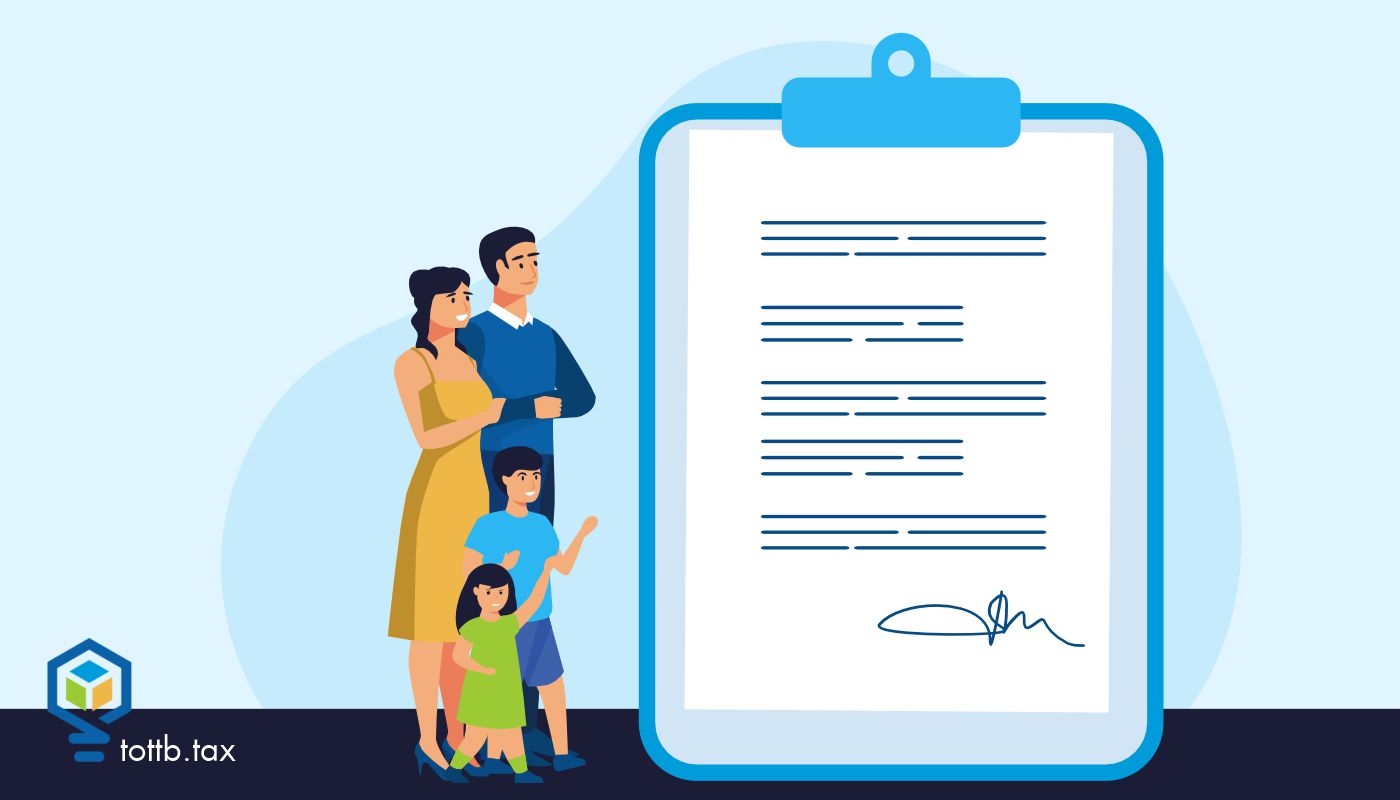CURRENT EDITION

An Analysis of the OBBBA’s Trump Accounts (Part 2)
In part one of this series, I went over the basics of the new retirement accounts for minors, Trump Accounts, which were created as part of the One Big Beautiful Bill Act (OBBBA). Trump Accounts allow the Government, Charitable Organizations, Parents, and others to contribute to a child’s savings, usually on an after-tax basis. These accounts then transition to a traditional individual retirement account (IRA) when the child turns 18. Although the contribution limits act like non-deductible traditional IRA contributions and have a contribution limit of only $5,000 per year, they do not have the same earned income requirements that traditional IRA contributions have. This means that children are able to accumulate savings even without earned income. This article presents several scenarios to examine how Trump Accounts may play into an overall savings strategy for children.
READ MOREUsing Split-dollar Life Insurance as a Tax Loophole
I’m no fan of needlessly complicating people’s tax situations, and I often remind readers to consider administrative overhead and compliance costs in addition to tax savings when evaluating tax strategies. The following strategies work best for high-net-worth taxpayers and medium to large “small businesses.” I’m not talking about people who think they are high-net-worth, but if even after the estate tax exemption was doubled, you have to file an estate tax return (Form 706), this is you. If your individual or business net worth is in or is approaching the double-digit millions, this may not apply to you – yet. Keep reading anyway because it may be only a matter of time before you can use it or one of your “I wanna be a playa” clients comes to you asking about this strategy because they saw it on TikTok. Keep reading to learn more on how to save.
Read MoreJoint vs. Separate Filing – New Advantages with the 2021 Stimulus
COVID-19 has affected every aspect of our lives, and tax filing status is no exception. Couples who have filed jointly for their entire marriage may find that for 2021 it is more beneficial to file separately. This is in large part thanks to the many stimulus bills the Congress passed in 2020 and 2021. The addition of Economic Impact Payments (EIP) and the associated Recovery Rebate Credits (RRC) have complicated what was once a simple tax calculation to now include these additional factors. In some scenarios, a couple would pay more tax filing separately than if they filed jointly, but because of pandemic-related credits, end up with more money in their pockets. Filing separately is not without its own potential headaches, though. Keep reading to find out when to switch your filing status.
Read MoreHealth Expenses: A Commonly Ignored Portion of the ERC Leaves Relief Money on the Table
The Employee Retention Credit (ERC) is a huge benefit for businesses, but it is often incredibly difficult to maximize fully. Practitioners must perform a complex interplay of wages between PPP, grants, or other wage credits. They must know the voluminous rules of the ERC program itself, the other programs that may enter into the equation, and the related portions of the Tax Code. With so much to consider, a particularly powerful tool can easily be missed: the ERC health expenses. Many are surprised when someone asks about health programs since they do not realize these benefits count as ERC qualified costs. Some ERC claims ignore health costs entirely or only capture the employee portions. Deductions for health costs are in the payroll data, but employer costs are typically not in pay records. By reviewing all the qualifying health expenses and available methods for allocating costs, you can really increase your ERC. Keep reading to learn more!
Read MoreYour Inventory’s Inflation Can Be Your Tax Savings
The pandemic forced businesses to adapt in many ways. The economic recovery has highlighted supply chain issues exacerbated by strong demand and leading to overall inflation. Businesses are now continuing to adapt to higher prices. If you have inventory, you perhaps can realize tax benefits to help with this inflationary effect through the Last-In, First-Out inventory method (LIFO). LIFO inventory methods are hardly a new tax concept, but taxpayers often may have ignored them due to complexity or periods of marginal inflation. This strategy deserves a second look during a year of high inflation. Read on to learn more about this tax savings strategy and the simplified calculation methods available.
Read MoreCryptocurrency Due Diligence for the Circular 230 Professional
Many tax professionals cringe at the thought of a client coming to them with cryptocurrency transactions. However, a May 2021 NASDAQ survey shows that 17 percent of American adults own crypto, making it harder for tax pros to avoid. It may soon be inevitable that practitioners will need to process cryptocurrency transactions. IRS Circular 230 requires practitioners to “possess the necessary competence” and to “exercise due diligence” in the return they prepare. Failure to meet these provisions could result in the taxpayer unnecessarily overpaying tax. What exactly does that require? Read on to find out!
Read MoreJust Good Business: Partners in a Real Estate Deal? Think Twice Before Forming That LLC
The limited liability corporation or LLC is one of the most popular entity choices for small business owners. And for good reason. An LLC is relatively simple to form and, as the name suggests, it provides a limited amount of liability protection for business owners. Nevertheless, some business owners are often unaware that an LLC has no inherent tax advantages (because, as our readers know, the Feds disregard it for tax purposes) over other types of entities (or even no entity at all). You should always be encouraged to make your entity choice based on a variety of factors, including both potential tax treatment and the administrative burden associated with it. How do you use an LLC to save tax, and better yet ensure it isn’t costing you more than it needs to? Keep reading to find out.
Read MoreThe “Hey, Hey Just Don’t Pay” Tax Strategy
One of the favorite sayings of my first managing partner, the late Herb Cohan, was “I’d rather owe it to you than cheat you out of it.” To be honest, like some of the other sayings, I was never clear exactly what it meant. Nonetheless, I think it sums up pretty well a tax strategy that is becoming more viable every year. File a timely accurate return and just don’t pay. Wait 10years and celebrate when the statute of limitation on collections runs out. Did you know that not paying can be a strategy to get out of your tax bill? It can be, depending on the qualifications and your specific circumstances. Keep reading to see how to qualify.
Read MoreFinally – SALT Cap Workarounds to Bypass Schedule A Limits
Ever since TCJA passed, taxpayers in high income tax states have been wincing each time they see the $10,000 limitation appearing on Schedule A. But while the law included this $10,000 state tax deduction limit for individuals , it did not include a limit for partnerships, S, or C corporations. To clarify the deduction’s limitation, the IRS issued a notice blessing an entity-level tax and accordingly, many states have implemented such a tax. This allows you the ability to bypass the $10,000 limit on Schedule A and deduct the state taxes paid as a business expense. As of this writing, 19 states have passed what are known as “pass-through entity taxes,” but there are pros and cons to using this loophole. If you are the owner of a pass-through entity and pay more than $10,000 each year in state taxes, this workaround may increase the state tax deduction beyond the limit. Keep reading to learn how.
Read MoreNOT A MEMBER YET?

SUBSCRIBE TO GET ALL OF OUR
GREAT ARTICLES AND RESOURCES!
CURRENT EDITION

An Analysis of the OBBBA’s Trump Accounts (Part 2)
In part one of this series, I went over the basics of the new retirement accounts for minors, Trump Accounts, which were created as part of the One Big Beautiful Bill Act (OBBBA). Trump Accounts allow the Government, Charitable Organizations, Parents, and others to contribute to a child’s savings, usually on an after-tax basis. These accounts then transition to a traditional individual retirement account (IRA) when the child turns 18. Although the contribution limits act like non-deductible traditional IRA contributions and have a contribution limit of only $5,000 per year, they do not have the same earned income requirements that traditional IRA contributions have. This means that children are able to accumulate savings even without earned income. This article presents several scenarios to examine how Trump Accounts may play into an overall savings strategy for children.

Another Tax-Smart Way to Save for Retirement
Most clients are familiar with the well-known accounts to save for retirement, such as the 401(k) and IRA. Some clients might be able to supplement those with a lesser-known vehicle as well. A life insurance retirement plan (LIRP) is a type of permanent life policy with a cash value basically funded by overpaying premiums. The money can eventually be taken as a tax-free loan against the policy for anything from medical expenses and long-term care to supplemental retirement income to, for the wealthy, the payment of taxes on large estates.

Taxes & Taxidermy: Rampaging Through The Tax Code On The Back Of A Stuffed Rhinoceros
Is the taxidermy fee for a stuffed bear deductible? If so, should I depreciate it? What would the basis and class life be for depreciation? Those are real questions asked in a group chat with some colleagues. Of course my answer was “It depends.” And, like all good tax professionals, I proceeded to ask a series of follow-up questions. And, like a good writer, that got me to thinking about all of the tax-related case law surrounding taxidermy and what it can teach us—it’s more than one might think.









